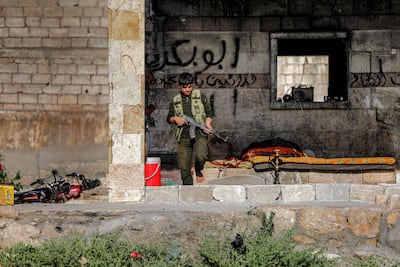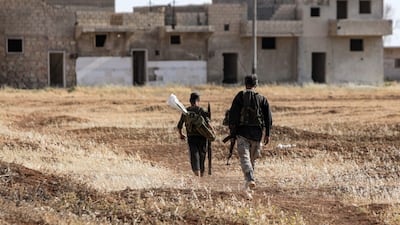Turkey plans to pursue targets in northern Syria after it completes a cross-border operation against outlawed Kurdistan Workers Party (PKK) militants in Iraq, a senior official said on Tuesday, after a deadly weekend bomb in Istanbul.
The government has blamed Kurdish militants for the blast on Istiklal Avenue on Sunday that killed six people and injured more than 80.
Threats posed by Kurdish militants or ISIS on Turkey are unacceptable, the official told Reuters, adding that Ankara will clear threats along its southern border “one way or another”.
“Syria is a national security problem for Turkey. There is work being done on this already,” said the official, who declined to be named as they were not authorised to speak to the media.
“There is an ongoing operation against the PKK in Iraq. There are certain targets in Syria after that is completed.”
There was no immediate comment from Turkey's foreign ministry.
No group has claimed responsibility for the blast on the busy pedestrian avenue, and the PKK and Kurdish-led Syrian Democratic Forces have denied involvement.

Turkey has conducted three incursions so far into northern Syria against Syrian Kurdish People's Protection Units, or YPG militia, which it says is a wing of the PKK. President Recep Tayyip Erdogan has previously said that Turkey could conduct another operation against the YPG.
While the PKK is deemed a terrorist group by Turkey, the US and the EU, Washington allied with the YPG against ISIS in the conflict in Syria.
Turks are concerned that more attacks could occur before elections set for June 2023, which polls suggest Mr Erdogan could lose after two decades in power.
A wave of bombings and other attacks began nationwide when a ceasefire between Ankara and the PKK broke down in mid-2015, before elections that year.

